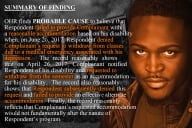You have /5 articles left.
Sign up for a free account or log in.
This is my last blog post for Mama PhD here at Inside Higher Ed, as the column will retire this month.
At first, I was sad at this loss to share my thoughts and hear from others. This column, developed to continue the conversation after an academic book of the same name was published, became a place for mothers in academia to write about their triumphs, struggles, and experiences. I certainly will miss writing my posts and reading the posts of my colleagues. Yet, part of me is optimistic that the end of this column demonstrates that progress has been made over the last nine years.
In some ways, the idea of the name “Mama PhD” has been troubling to me at times. I believe that part of the goal of accomplishing better workplace conditions for woman is also to recognize the need for the participation of others, including dads, in raising children. I wondered sometimes whether we were excluding the point of view of others facing their own challenges. In fact, I was tempted to have my own spouse take on a guest post, curious at how his perspective on the same issue would differ. The name also seems limiting in acknowledging that there are all types of families doing what we label as “motherwork,” and maybe a better label would be “caretaking work.”
With the explosion of social media and more recognition of what popular media have labeled as “work-life balance,” we are also seeing wider discussions of the challenges in this area, whether in academia, government, or corporate organizations. People offer suggestions, complaints, and new models for approaching the balancing of work and life issues, many of which I’ve referred to in my blog posts.
Our work, though, is not yet done. We do not hear often enough from those in less-privileged positions, and we should recognize that even the ability to discuss achieving better work-life balance, both inside and outside academia, is itself a privilege. This is something I’ve struggled to acknowledge in my posts.
I leave this last blog post with hope that ideas from these discussions will influence experiences at home, work, in communities, and within governments. I thank my editor Scott Jaschik for all his work during my time writing this column. I also thank Dr. Elizabeth Coffman, who brought me to this column in the first place. Most importantly, thank you to those who have read and commented on my blog posts during these years. It’s allowed me to see my own struggles within a larger community and understand that the caretaking of one’s family is not just a mother issue, but a human one.





